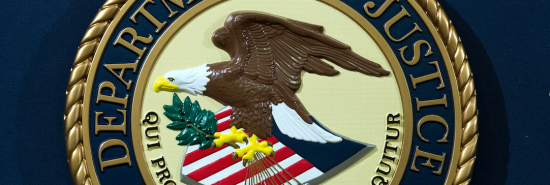
Federal authorities should pay legal fees for conservative groups targeted by abusive subpoena
Quin Hillyer
A federal court in Alabama ought to grant a request from two aggrieved groups to sanction the Justice Department for a radically abusive subpoena it filed against the groups.
The Eagle Forum of Alabama and the Southeast Law Institute on Nov. 3 filed a motion for sanctions, including for legal fees and time reimbursement, for what amounted to harassment they suffered due to the subpoena. The subpoena, which Judge Liles Burke quashed on Oct. 24, had demanded five years of voluminous records and communications from the two groups related to their support for an Alabama law outlawing sex-change procedures for children.
The underlying lawsuit challenged the constitutionality of that Alabama law. Neither of the aggrieved groups were parties to the lawsuit in any way, and the subpoena put what they described as a “massive burden” on them for what the judge described as “little — if any — relevance” to the case at hand. The absurdity of the Justice Department’s demands was shown when it admitted, before the subpoena was quashed, that it really only needed information relevant to one category of documents, out of the 11 it originally demanded. And even that category, the judge indicated, was spurious.
Indeed, the judge’s comments about the department’s behavior were scathing. Very appropriately, he said the requested materials were “unlikely to reveal or lead to any information” relevant to the law’s constitutionality, and at another time asked incredulously, “How in the world could what the Department of Justice be asking for be relevant to this case and its outcome?”
All of this is of great importance not just for the Eagle Forum and the Southeast Law Institute, but to protect the First Amendment speech, petition, and associational rights of any groups that want to participate in the political process. Judge Burke emphatically noted this concern: “Is the new standard going to be that these kind of subpoenas … go out … to any advocacy organization, and they want e-mails to their members, they want social media posts, they want things that the group just considered in their advocacy? … I hope we’re not going to go down this road with any organization in addition to Eagle Forum.”
In asking for sanctions, the organizations cite Rule 45 of federal civil procedure: “A party or attorney responsible for issuing and serving a subpoena must take reasonable steps to avoid putting undue burden or expense on a person subject to the subpoena. The court … must enforce this duty and provide and appropriate sanction — which may include lost earnings and reasonable attorney’s fees,” for a subpoena that violates the rule.
This requirement for sanctions should apply even more strongly when First Amendment rights are at stake, and especially in a case such as this when there is plenty of circumstantial evidence that the subpoenas were intended, from the start, as a form of political harassment of disfavored groups. Here, the motion for sanctions asserts, quite believably, that “the government’s true intent in issuing these subpoenas was to try to intimidate [the organizations] and other like-minded groups if citizens into silence and to stay out of the political process going forward.”
CLICK HERE TO READ MORE FROM THE WASHINGTON EXAMINER
The two groups, therefore, make sense in writing that there is a clear and obvious “need for a deterrent against future government overreach.”
Federal courts are not loath to sanction private sector attorneys for irresponsible behavior. In a constitutional republic, the government should be more, not less, subject to sanction if its attorneys act abusively.
